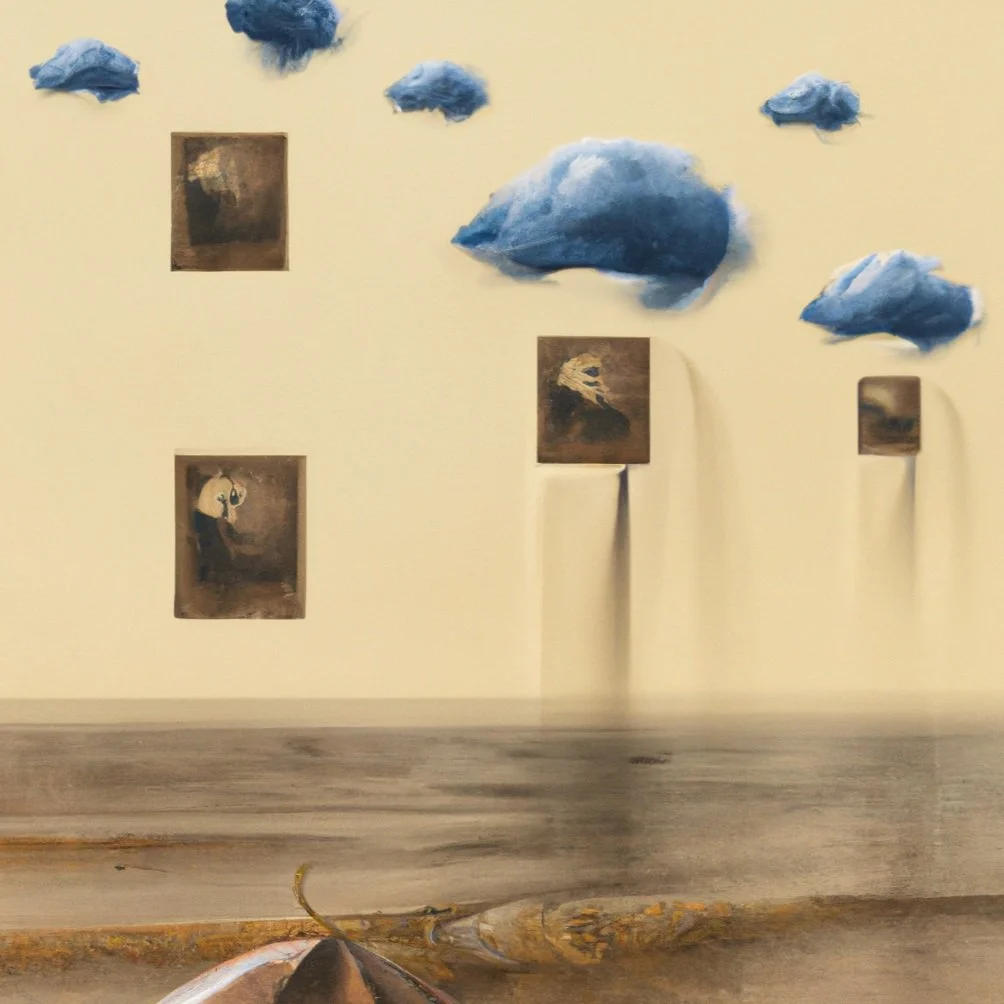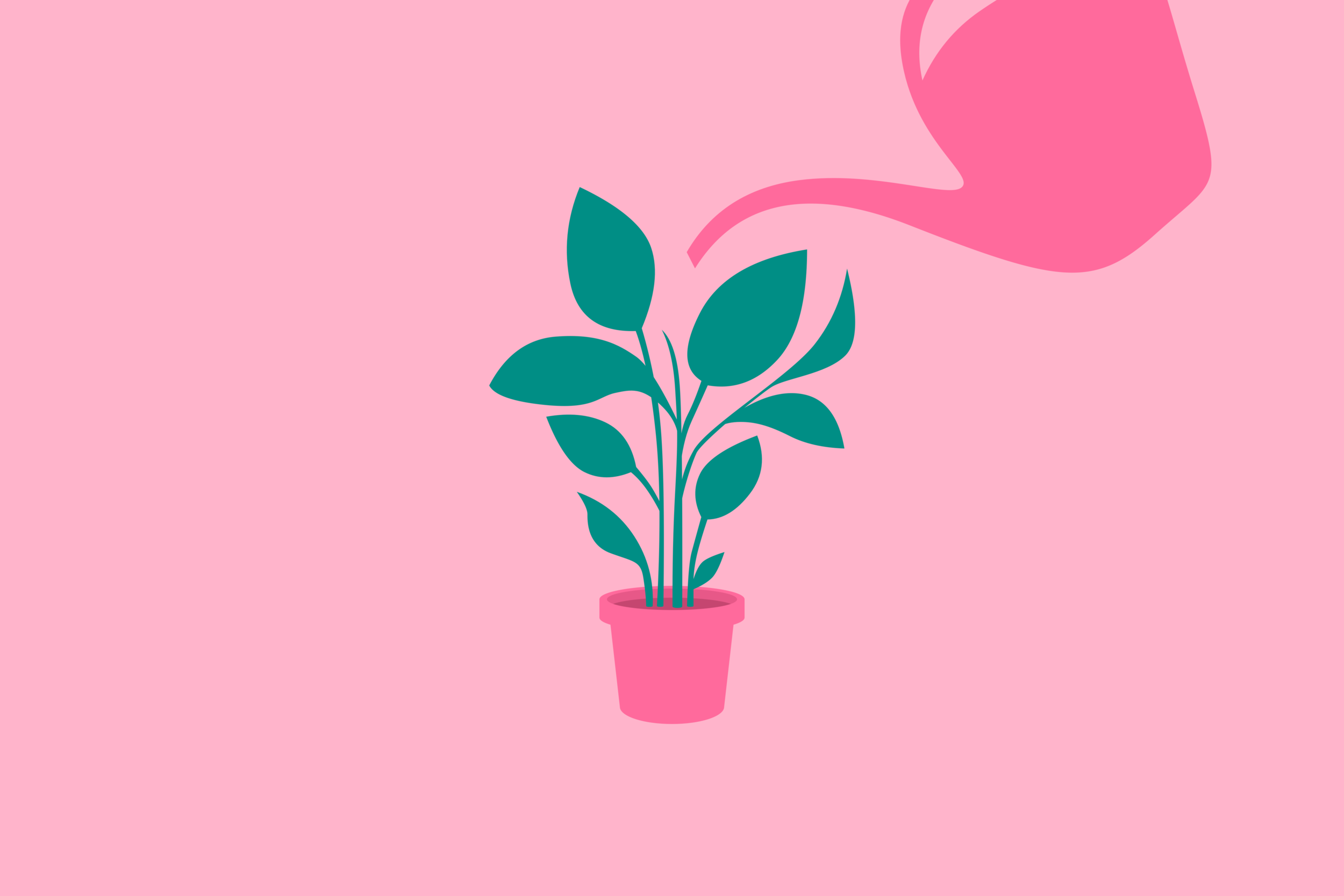Four steps that help me keep going
Yesterday, I spoke to my colleague A. We had set up a user-interview session but, these days, I find that the first 30% of work meetings end up being dedicated to casual chats. Those first minutes are all that's left of contact with others I don't share my flat with. I love them.
A. reminded me of a session with a mindfulness expert we had a few weeks back. At the time, I was having a harder time adjusting to my new reality of working from home. During that conversation, I asked for advice on how to maintain creative energy specifically. I don't remember the answer, but I hadn't found it particularly helpful.
"How did you solve your problem?", A. asks me on our call, making me think about whether I had. I thought I had. In a way. After all, I had been publishing new podcast episodes, wrote more than I ever did before in a similar time period complete with an illustration for each post, made style adjustments to my website and blog, and even started a new weekly-ish newsletter, hosted a Meetup with colleagues at my company, and created a photo book of last year's trip to China.
Still, until A. asked me about it, I hadn't thought of this period as particularly creative. Productive maybe. Busy. But creative? Yes! Could it be that I had inadvertently solved my own conundrum? Was this the deliberation-without-attention effect at work? I think so. I wanted to know how my subconscious mind helped me out this time, so I reflected on this question. Here are the moments and realizations I think made a difference:
Problems of output are problems of input
Before I read this exact phrase on Austin Kleon's blog, I heard it from my dad. Having complained to him about my former creative slump, he advised to feed my mind with more extraordinary impressions I wouldn't come across during my day-to-day.
On his behest, I began to re-read books I've previously felt inspired by, and started to deliberately and regularly visit the one or the other website I used to frequent regularly while at art school. I even dusted off some content aggregators like Pinterest and Muzli. For my birthday, I received the gift of a Monocle subscription which, again, provided me with a different sort of inspiration on a regular basis for lazy weekend mornings.
Embracing procrastination allowed me to not necessarily spend more time with these sources, but be less apologetic about it. It instantly felt relieving to relax and think about what I was finding without feeling guilty about the time spent doing so. What was key for me was to allow myself the time to be inspired, to contemplate what I found (rather than merely swiping past it), and to do so on a regular basis.
Taking note
Throughout this process, I have become more diligent with taking notes. I tried doing this before, but was lacking incentive. It didn't seem worthwhile keeping a log of interesting finds just for the sake of letting it rot away in my archive. Now I make it about others, taking notes of things that are worth sharing through my newsletter or at work. I'm still not perfect, but at the end of most days I end up with a handful of finds that inspired me, to share, to think some more about, and to inspire my own creations.
Doing the work
Especially during times of distress, creativity may not come easy on its own, but as part of being creative. As with any activity, building a habit of doing it regularly makes me better over time, and leads to a body of work along the way.
I am generally most creative in the morning, so one method that helped me more than any other do get back into a creative ritual was writing Morning Pages (or Morning Notes, as I called it since I rarely write more than a page): I get out of bed, brush my teeth, press myself some coffee, sit down, and start writing.
Sometimes I've gone to bed the night before with an idea of what I want to start writing about the next morning, but often I just write down what's on my mind. Sometimes, these thoughts become a blog post, other days they turn into a to-do list for the day, or a repository of ideas to execute during my afternoon low, every now-and-then they really are just diary entries and recaps of the previous day. I empty my mind onto a page to free it up, and sometimes good work comes out of it.
It doesn't matter if you write, draw, make music, or create business plans. If you want to be creative, you might just have to sit down and do the work. You may not feel like it at the start and you may not always like the result, but you certainly won't get any results if you don't sit down, do the work, and come back the next day.
Getting pads on the back
I have wasted too much time in my life thinking about what the wrong people think of me and how to present the right image to them. However, some external validation by the right people has really encouraged me to keep going. In order to get it, I had to share my work with them. That's scary but ultimately, I've never heard a mean word in response.
And yes, if you show your work to your friends and parents, they may not always give you the full truth, and you may think of taking their kind words as somewhat self-indulgent. But if you need some encouragement, don't be afraid to take it. Besides, your good friends may still tell you how to do better, but in a way that doesn't make you want to give up.
Almost every week, I receive kind signals from people I know personally. Some unsolicited kind feedback here, or an unexpected newsletter sign-up and an encouraging text message there; these signals are critical for me - not necessarily to encourage doing more work, but definitely to get the confidence to share it.
I never know how long any of my creative pursuits will last. I set goals for myself. Sometimes I exceed them, sometimes I don't. For now, this is working for me. I hope it will for you too. If you feel like sharing your work with someone, I'd always love to see it.



















